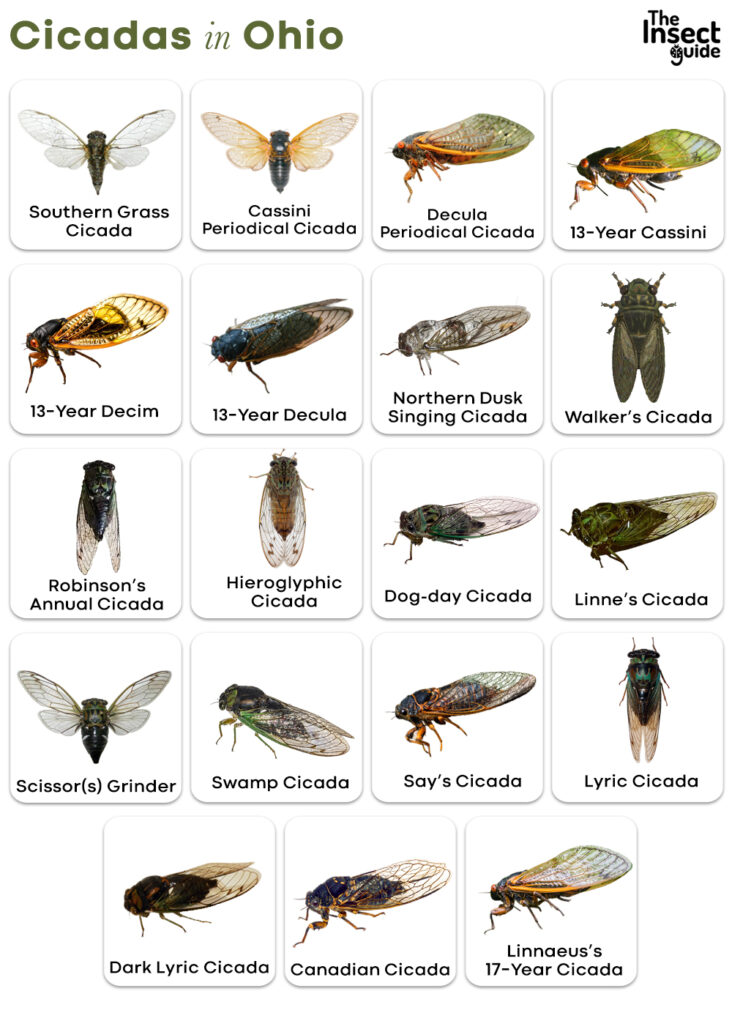Cicadas in Ohio
Ohio has both periodical and annual cicadas. 13- and 17-year periodicals visit the state in the spring of their respective emerging years. Their summer buzzing can reach sound levels as high as 100 decibels! They are most active from mid-May to mid-June and are gone within a month of coming out. Broods V, VI, VIII, X, and XIV of the 17-year cicadas and brood XXII of the 13-year cicadas visit Ohio.
The dog-day cicada is the most common among the 12 annual species found here. The northern dusk singing cicada is the largest in entire North America. The annuals come out in late summer. Unlike the greenish annual cicadas, the periodicals have black bodies with bold, red eyes.
Types of Cicadas in Ohio
- Southern Grass Cicada
- Cassini Periodical Cicada
- Linnaeus’s 17-Year Cicada
- Decula Periodical Cicada
- 13-Year Cassini
- 13-Year Decim
- 13-Year Decula
- Northern Dusk Singing Cicada
- Walker’s Cicada
- Hieroglyphic Cicada
- Dog-day Cicada
- Linne’s Cicada
- Dark Lyric Cicada
- Lyric Cicada
- Scissor(s) Grinder
- Robinson’s Annual Cicada
- Swamp Cicada
- Canadian Cicada
- Say’s Cicada





